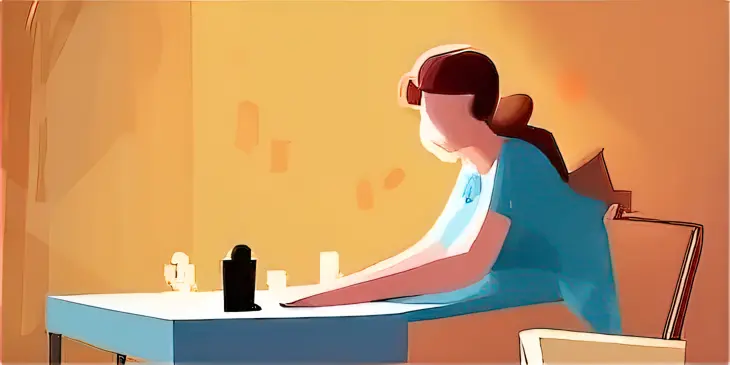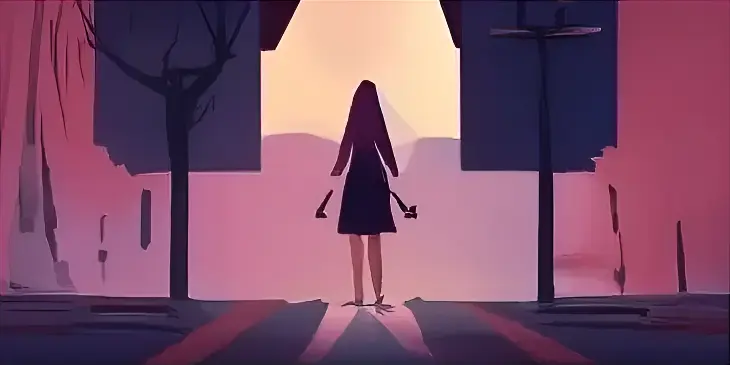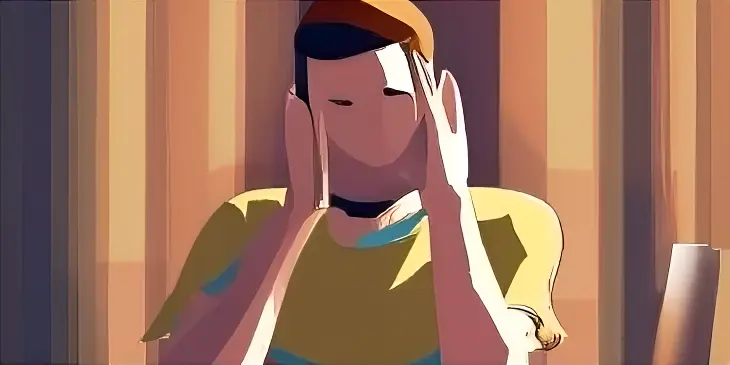Very few of us find it easy to make decisions in life, and the more important the possible outcome is to us, the more daunting the choice between two options seems to be. Decisions affect our lives in various ways – some of them predictable, others not so much. Consequently, it is only natural that making decisions sometimes gives us anxiety. Fortunately, though, this is entirely unnecessary, and luckily for us, learning to make choices without worries is easy and fun.
This post is a part of the The Beauty Of… series which concentrates on shifting our focus away from the negatives in life and towards finding the positives and improving certain aspects of a situation so that we will actually enjoy it.
Contents
STORY TIME
: Importance Of Decision-Making :
For the longest time, I belonged to the group of people who avoid making decisions whenever possible.
It started small without me even noticing it, and over the years it somehow grew into a full-blown inability to make even the most minuscule decisions without worrying about making the wrong choice.
In some situations, I simply didn’t have an opinion and was fine with whatever someone else decided upon – such as which restaurants friends and I would go to. After all, as long as we got together for a cozy evening eating and talking together, I enjoyed myself no matter what (being a hog and loving all kinds of food helped, too, I suppose).
Then there were occasions when I felt I wanted to make a certain decision but ended up letting my mind overrule my gut feeling. Having a lifelong passion for something isn’t enough to seriously pursue it professionally after all, is it? If everyone else follows a different path, it cannot be wrong, can it? Get a grip on yourself and don’t make such a fuss – right?
Eventually, I found myself stuck in life situations that entirely overwhelmed me and took a serious toll on my health – but by then I had so fundamentally forgotten how making decisions worked that I needed to learn everything again from scratch.
Little by little, I crawled out of the hole I had dug myself into and started making decisions I ended a toxic relationship that had kept me small, I left an apartment building whose fellow tenants had driven me into insomnia, and I changed my career direction.
I’m hoping that this blog post will give you some ideas on what you can do to start making choices again in your life – first the small ones, then the bigger ones, until one day you’ll be ready to take on the ones that once felt like unclimbable mountains.
SHIFT YOUR MIND
: Advantages Of Making Decisions :
Making decisions is a very personal matter, and I truly believe that (as long as we go through life without hurting other beings) there are no choices that are objectively right or wrong for everyone. Some choices work for us in one situation and don’t in another. It is up to us to decide which path we want to take.
:1. The Fear of Making The Wrong Decisions:
The first step on the journey to becoming a happy-go-lucky expert in making choices we feel comfortable with is to overcome the fear of making any choices at all.
As long as we’re afraid of making a decision and regretting it immediately afterward, we will instead opt for avoiding decision-making altogether. No choice, however, is also a choice but not the one we should be aiming for.
By not doing anything and hoping for life, the universe, fate or whatever else we believe in to make the decision on our behalf, only one thing is for sure: We’re giving up even the slightest control we may actually have over the matter.
We allow external circumstances to determine our future path in life and run the risk of things going exactly the way we DON’T want them to.
So kick the fear of making decisions that turn out to be subpar to the curb where it belongs, and let’s try the following: Let’s make decisions to the best of our abilities and see where that takes us.
Could it go wrong the same way it could if life decided things for us? Of course, but at least we’ll have a say in it.
:2. The Grass Is Not Greener On The Other Side:
We all know the feeling: We’ve finally decided upon something and are happy with the overall situation. And then we accidentally glance over our neighbor’s garden fence and notice how much greener the grass is on their side.
Wait a minute – was the decision we made the wrong one after all? Have we not considered all important circumstances? Did we miss something our neighbor is aware of?
When we make a decision we naturally choose one thing over another, and we do so hundreds of times over an ordinary day without paying any attention to it. We don’t second-guess and we don’t regret them – they are simply a part of our daily routine.
We’re not sitting at home feeling unhappy about the clothes we ended up putting on, the food we chose to eat or the hobbies we surround ourselves with – simply because we don’t feel the need to compare ourselves to others.
Philosopher Søren Kierkegaard once said, “Comparing is the end of happiness and the beginning of dissatisfaction.”, so why are we making life deliberately hard on ourselves as soon as it comes to bigger (read: more important) decisions?
Yes, the grass may be greener on the other side, but we don’t know at what price it looks the way it does.
Do we want to fertilize our yard as often as our neighbor does? Are we ready to mow and comb it as thoroughly as he is? Would we be willing to take time away from other things just to have more of it to spend on our grass?
If the answer to any of these questions is No, the case is settled. There is no need to compare our lives and our decisions to someone else’s. This is our life, these are our living circumstances, and we’ll make the decisions that best fit them. Period.
:3. Love It, Change It, Leave It:
Whatever situation we find ourselves in, we always have three options to react to it, and each one is a conscious decision.
We can choose to love it and therefore stay in it. This is the easiest of all options as it isn’t difficult to say yes to a situation we’re happy with.
We can also choose to change it if it doesn’t correspond to what we had hoped for. This can end in three ways: The situation improves, it remains the same, or it deteriorates.
If it improves, all power to us, we have successfully made a decision that resulted in happier circumstances than we lived in before making the choice.
If it remains the same or even gets worse due to our choice, we always have the third option. We can choose to leave the situation altogether and strive for a solution that works better for us than the one before.
Whatever we end up opting for – it is our choice to make, we are in control and able to choose, and in that alone lies an unlimited amount of freedom.
And to make things even better: Our decisions are never final. Whenever we become aware that we’re not where we want to be (yet), we’re free to try again and move closer to our goal.
:4. Stop Caring About What Other People Think:
When it comes to our lives, we shouldn’t care about what other people think about us. Not too much anyway.
So what if our parents think we’re crazy for choosing a specific career path? Who cares if our friends share our enthusiasm for our newest passion? Big deal if people witness us fail at something – at least we tried.
As far as science can tell today, we only have this one life. If we spend it worrying too much about what other people think of our choices, we will end up being nothing more than extras in a movie in which we were originally meant to be the main characters. What a sad waste of time and possibilities, and so utterly unnecessary.
Of course, it is natural to wonder whether others think highly or disapprove of our decisions. Nonetheless, we shouldn’t let that influence our actions or keep us from doing something we would love to do. Other people are not in our shoes, we are the ones that need to be able to walk comfortably in them.
So whenever we find ourselves in a situation worrying about the disapproval of others, let’s ask ourselves: What would we do if nobody was watching us? What would we decide upon if no one followed up on it? What would we opt for if the choice was all ours?
Because frankly, it is – we just need to reach out for it.
The more decisions that you are forced to make alone, the more you are aware of your freedom to choose.
Thornton Wilder
Help this ugly duckling turn into a swan.
This website is brand new and hasn’t gained much traction yet, so I rely heavily on word of mouth. If you enjoyed what you read so far, it would make my day if you shared it with friends and family and followed me on social media. Thank you! ❤︎
REACH YOUR GOAL
: How To Make Decisions With Ease :
We’ve already established that we want to take matters into our own hands and make decisions ourselves instead of waiting for external circumstances to make them for us. The next step is to actually take action and have fun trying out the many ways in which we can decide for or against something.
:1. Flex Your Decision-Making Muscle:
Making decisions is like exercising in a way. When we try it for the first time, we find it difficult, maybe even impossible. The more often we do it, the easier it gets, and the more natural it feels.
The decision-making muscle in our mind can wear out the same way our physical muscles can if we overdo things, though. If we confront our brain with too many decisions during the day, it gets tired and may well end up being overwhelmed and in turn unable to make further choices.
The goal is to find a healthy middle ground between making too few decisions and too many. The best way to achieve that is by reducing everyday choices that don’t matter so that we have more flexing power for the decisions that do.
Why did Steve Jobs choose to wear the same outfit (blue jeans and a black top) every single day? That way, he didn’t have to make a conscious decision regarding what to wear when opening the closet every morning.
Why do people meal-prep during the week (apart from obviously saving time)? So that they don’t need to constantly ask themselves what they should buy and prepare for lunch or dinner.
By taking decisions that are comparatively insignificant off our hands, we can avoid decision fatigue and help our decision-making muscle to grow so that we can then use it to ponder the things that are actually important to us.
:2. Make A Decision At Gunpoint:
This might sound like a morbid thought experiment, but bear with me for a second so I can explain.
Let’s imagine we’re faced with a life-or-death decision, and someone is holding a gun to our head, demanding that we choose between two options.
The pressure is immense, and we have no time to overthink or second-guess ourselves. In this extreme scenario, we would likely tap into our gut instinct or intuition to make a quick decision.
The essence here is to mimic the clarity and decisiveness that comes with extreme pressure.
Sometimes, the fear of making the wrong choice can paralyze us, leading to indecision. By imagining this extreme scenario, we can train ourselves to prioritize what truly matters and make decisions more easily because there is a clear focus.
If we find ourselves stuck between choices, taking a moment to tune into our intuition can be quite helpful. Oftentimes, our initial reaction is a good indicator of what we truly want or need.
:3. Imagine Lacking A Choice:
Another thought experiment is the following:
Imagine having to live with either option for the rest of your life.
This exercise can help us gain perspective on the gravity and permanence of our choices, pushing us to evaluate them more critically and make decisions with greater care.
What impact will each choice have on our lives, relationships, and future? Imagining the long-term consequences can help us prioritize what truly matters to us.
While some decisions may seem logical on the surface, it’s essential to ask ourselves whether or not this choice will bring us joy and fulfillment in the long run.
Which option are we less likely to regret in the future?
This exercise encourages us to approach decisions with a balanced perspective, considering both rational and emotional factors, and aligning our choices with our core values.
If we were to make a decision and stick to its impact for the rest of our lives, which one would it be?
:4. Make A Pro / Con List:
Make a thorough list containing all the pros for and cons of a specific decision. Write down everything that pops up, no matter how small or insignificant it may seem, and regardless of whether your gut or your brain comes up with it.
This can be either rational or emotional, and there is no right or wrong. There are only thoughts your (sub)conscious deems important. So write all of them down, there’s a reason why they’re floating to the surface now.
If we want to make sure we’re not missing anything by accident, we can also ask our friends to help us complete the list – sometimes they think of things we don’t.
Once the list is complete (this can take anywhere from a few hours to a couple of weeks – take your time), continue by sorting the items you write down according to the priorities that are important to you.
Go with your gut feeling rather than what “one should do”. Remember, this is your way of making the decision that’s best for you – not for someone else.
Ask yourself the following questions:
- If both the pros as well as the cons came true, would you decide for or against this option?
- What weighs heavier to you, the top 10 pros or the top 10 cons?
- If you knew with absolute certainty that you were able to overcome the cons, would you do it?
If you take your time and listen closely, the little voice inside you will tell you unmistakably what the right decision is.
:5. Paint A Colorful Worst Case Scenario:
When faced with a decision, our minds often gravitate toward the worst possible outcomes, fueling anxiety and indecision.
Instead of letting these fears paralyze us, though, we can try “painting” a colorful worst-case scenario to explore our fears in a less daunting way.
Let’s take a moment to vividly imagine the worst possible outcome of each choice we’re considering. We picture it in full color, with all its details and consequences.
Then we analyze what exactly makes this worst-case scenario so terrifying. Is it financial loss, embarrassment, or maybe a missed opportunity? Identifying our specific fears can help us address them more effectively.
Our worst-case scenarios are often based on assumptions or irrational fears. Questioning these assumptions can make them shrink. How likely is this scenario to actually occur? What evidence do we have to support this fear?
Once we’ve painted our worst-case scenario, we can think about ways to handle it if it were to happen. Having a plan in place can provide reassurance and make the worst-case scenario seem less intimidating.
After exploring the worst-case scenario in detail, we can finally shift our focus towards more positive and realistic outcomes and become aware of the potential benefits, opportunities, and growth that each choice offers.
:6. Fast Forward To Your Death Bed:
When we don’t know what to do and are stuck between a rock and a hard place, it can help to ask ourselves the following question.
How would we think about this moment in time when lying on our deathbed looking back?
Imagining this helps us prioritize what truly matters in our lives and see the bigger picture beyond the immediate dilemma we’re currently facing.
What would we regret more – taking a risk and failing or not taking any action at all? More often than not, our biggest regrets stem from missed opportunities rather than mistakes or failures.
What about the legacy we want to leave behind and the impact we want to make? Will this decision align with our values, goals, and aspirations for our life?
By fast-forwarding to our deathbed and reflecting on our life from that perspective, we can gain clarity on what truly matters to us and make decisions that align with our values, goals, and long-term vision.
This exercise can help us overcome indecision, fear, and uncertainty, empowering us to make choices with courage, purpose, and conviction.
FOOD FOR THOUGHT
: Questions To Ponder Over :
- What would you regret not having done on your deathbed if you didn’t at least try?
- Where would you be today if you hadn’t made the best decision of your life?
- How could you solve a specific worst-case scenario resulting from the wrong decision?
- If you were able to turn back time would making decisions become easier for you?
- What is a decision someone you know made that you admire? Why exactly is that?
I’d be thrilled to hear from you in the comments below.
Don’t be shy.
HAVE A LOOK
: Information For Research :
Would you like to see an article on a particular topic?
Because I would love to write about something I know someone will enjoy (instead of writing for the void without knowing whether anyone will ever read it).
You can be as detailed as possible or write a one-liner – either is perfectly fine.
Comment below or get in touch here.
CONCLUSION
: Key Takeaways From This Post :
Making decisions is a fundamental part of life and provides us with a sense of control over our lives. Avoiding decisions, on the other hand, means giving up control over both our lives and our future.
Being able to make choices without anxiety might seem daunting, but it is quite an exciting task.
Personal choices are neither objectively right nor wrong – they work based on individual situations. Consequently, we should always prioritize our happiness and goals over external judgment.
We can do this by doing one of the following:
- Simplifying daily choices can help us conserve mental energy for more important decisions.
- Mimicking the clarity of extreme pressure can help us make quicker and gut-based decisions.
- Considering living with each decision long-term can help us weigh its impact.
And this is only the start of a colorful journey…





Dear special someone who is reading my blog,

I’m so excited you took time out of your day to read this post and even made it all the way down to the comments section. I’d love to hear from you and exchange thoughts and ideas – so please get in touch!
Did you enjoy the read? Could you relate to anything in particular? Were you hoping for something I missed? I’m posting new articles weekly and am open to topics to write about. Is there anything you would love to see a post on? If so, comment here or send me an email. I’ll happily look into it.
This website is brand new and hasn’t gained much traction yet, so I rely heavily on word of mouth. It would make my day if you shared articles you enjoyed with friends and family and followed me on social media.
You can also sign up to be notified via email whenever new posts are available.
I’m happy to have you here and get to know you better over time.
All the best,
Alex